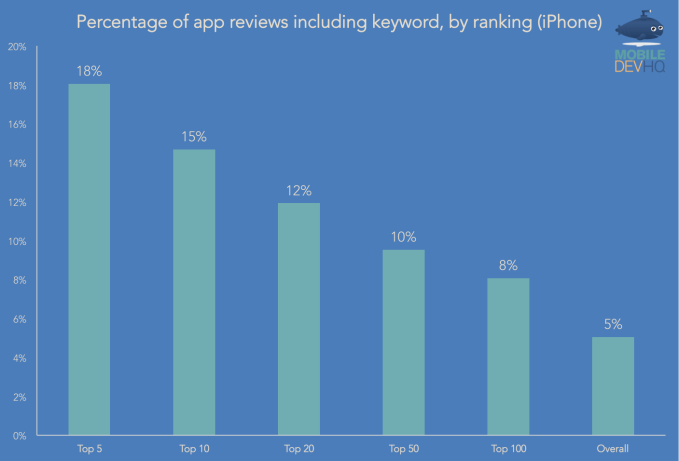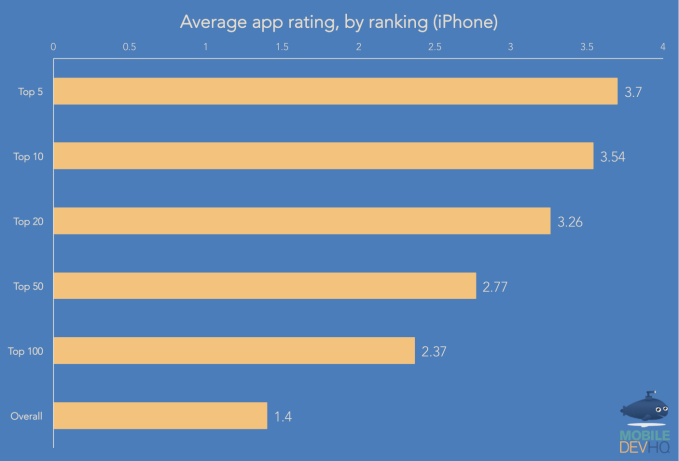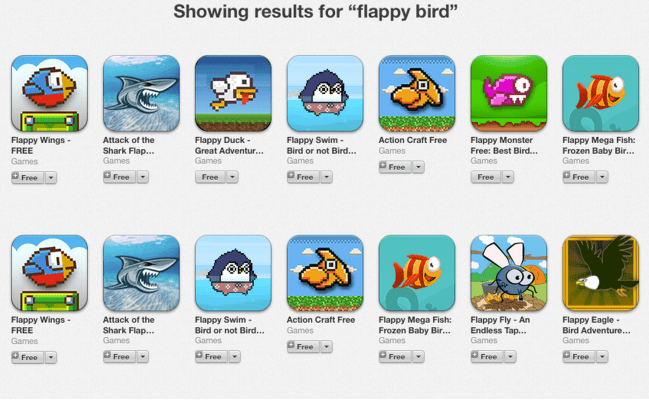New research released today from mobile app marketer Fiksu examines the impact that download volume has on search results in the iTunes App Store.
Today, the App Store has over a million applications available, which means, more than ever, app discovery is being fueled by search as opposed to lists and top charts. Developers now need to know not only how to increase their App Store ranking, but also their search result position, so that their apps are returned first when users type in a query referencing a particular keyword or phrase.
Search results are generally understood to be calculated by three key metrics: the company name, an app’s title, and the 100-character meta-keywords provided within iTunes Connect by the app’s publisher. But Fiksu says it found that download volume, as measured by Category rankings, appears to also have a strong impact on search results ranking.
App Store search today still leaves a lot of room for improvement. The results sometimes fail to showcase the better-known, more recently buzzed about apps in the top results (as when Facebook Paper first launched), while other times results for nearly identical phrases are mind-bogglingly different.
Fiksu wanted to figure how if “popularity” as determined by download volume was having any impact on search results, so it began testing App Store search following the removal of the viral hit Flappy Bird from iTunes. Every day after Flappy Bird’s disappearance, Fiksu ran a search for the phrase “flappy bird” and then matched the results to the app’s then-current overall chart rankings. These chart rankings are based on recent download volume, among other things.
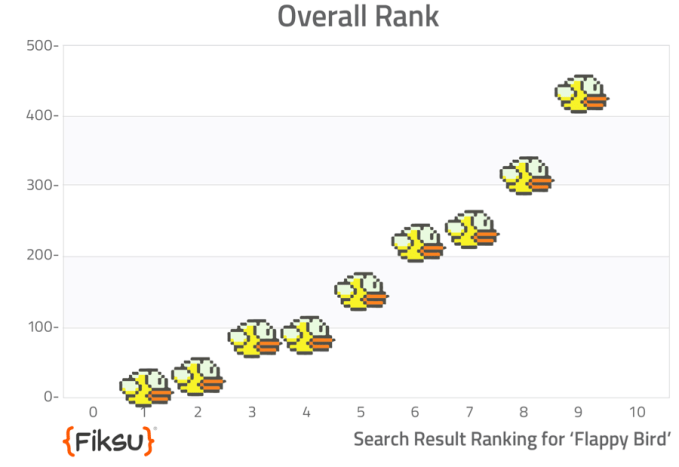
When averaged out, the data indicated, not all that surprisingly, that search result rank and overall rank were closely related. That is, the No. 1 search result would also have the highest overall rank (usually No. 1 overall), and the others were ordered by descending overall rank. In other words, Apple gives apps a bump in search when their recent download volume increases, it seems.
However, there’s still some sort of secret sauce that hasn’t been quite figured out because, while the above data is based on averages, there were occasionally instances where a No. 5 search result would be the No. 1 or No. 2 app in the store, or when a No. 1 overall rank wasn’t the top search result.
Fiksu looked to see if an app’s average rating was having an impact, but those results were inconclusive. (The apps all had similar ratings, though – 3.50-4.50 – so that could have been an issue).
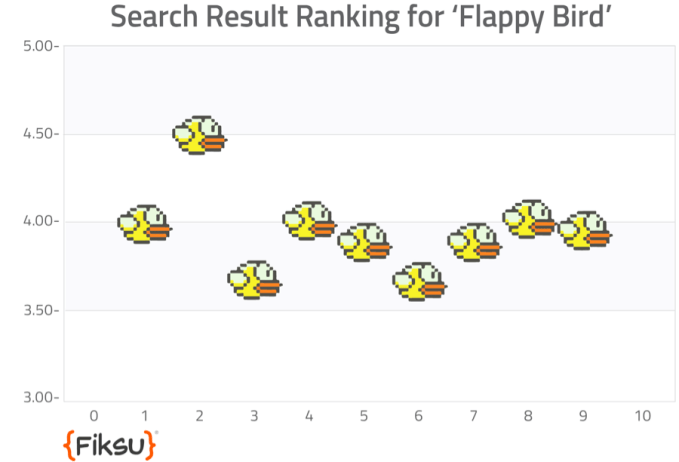
In addition, the company noticed that search ranks were more volatile than the charts, with 22 apps showing up in the top 10 search results over the course of the two weeks. In order to make sure that the volatility wasn’t just a “Flappy Bird” thing, so to speak, the company also ran searches for the term “game” and found a similar pattern.
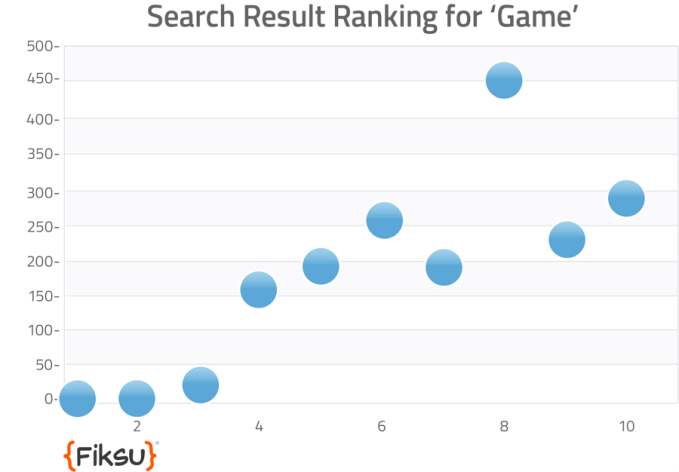
While these initial experiments seem to indicate there’s at least a correlation between download volume and search ranking, they can’t definitively prove that the algorithm works this way, especially as it’s still unclear how much weight other factors carry, like the app’s name, keywords, or metrics like historical downloads or average ratings.*
What can be said for sure, however, is that an app’s search position will matter more as the store grows in size, and as queries become increasingly sophisticated thanks to recent App Store improvements, like the newly added related search suggestions, for example, and other changes yet to come.
* Update: Ian Sefferman, CEO at MobileDevHQ, says he has found a high correlation between the percentage of the reviews which include a keyword and search rankings, as well as a high correlation between average rating and search rankings:
